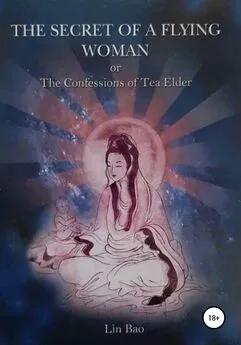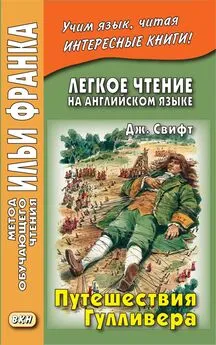The Theatre - Kellerman, Jonathan
- Название:Kellerman, Jonathan
- Автор:
- Жанр:
- Издательство:неизвестно
- Год:неизвестен
- ISBN:нет данных
- Рейтинг:
- Избранное:Добавить в избранное
-
Отзывы:
-
Ваша оценка:
The Theatre - Kellerman, Jonathan краткое содержание
For all its many crimes of passion and politics, Jerusalem has only once before been victimized by a serial killer. Now the elusive psychopath is back, slipping through the fingers of police inspector Daniel Sharavi. And one murderer with a taste for young Arab women can destroy the delicate balance Jerusalem needs to survive.
Kellerman, Jonathan - читать онлайн бесплатно полную версию (весь текст целиком)
Интервал:
Закладка:
"Nice to meet you, Mr. Sharavi," said Luanne. "That butterfly is lovely."
"Saba made Eema's earrings too," said Shoshi, pointing. Laura pushed her hair aside and revealed a lacy silver pendant shaped like a spice box. From the bottom of the earring hung tiny gold flags.
'Lovely."
"My Saba is the best."
Yehesqel smiled, shrugged, and drank arak. Laura left and came back with a box full of jewelry, spread the pieces out on the tablecloth.
"These are all my father-in-law's creations."
"Such delicacy," said Luanne, examining the pieces. She picked up a filigree bracelet set with turquoise and held it up to the light.
"I learned to bend wire as a child," said the old man in heavily accented English. "What a man learns as a child, he remembers."
"My father is being modest," said Daniel. "He's a master of his art."
"Bezalel was an artist," said his father. "He carved the Temple vessels with God's hand guiding his. I am a craftsman. I learn by making mistakes." He turned to Luanne. "We Jews became craftsmen because we were forced to. In Yemen we lived under the Muslims, and the Muslims hated the crafts and gave them over to the Jews."
"How strange," said Luanne.
"It was their belief. They called us usta-masters-but put us under them, on the bottom. Seventy crafts we did: weaving, leather, pottery, baskets, making swords. A craftsman is a good job for a Jew, because it doesn't stop the learning of the Torah. A man makes a pot-when it cooks in the oven, he opens a book and studies. The Muslim understands that-he loves his Quran."
"I've been told," said Luanne, "that the Jews living in Arab lands were treated with respect."
Yehesqel smiled. When he spoke again, his speech took on a singsong rhythm.
"In the beginning, Muhammid thought the Jews would all become Muslim. So he said nice things about us, made Moses a big prophet in Islam. He even put parts of the Torah into the Quran-the Israilyat. It's still there. But when we said no, we want to stay Jews, Muhammid got very angry, told everyone that the Jews were cofrim what's the word in English, Daniel?"
"Infidels."
"Infidels, The Christians, too, were infidels. Sometimes infidels were killed; sometimes they were kicked outside. In Yemen we were kept and protected-like children. We lived in small villages in the mountains. Even San'a, the capital, was just a big village. We lived very poorly. Many of the Arabs were poor also, but we were the poorest because we couldn't own land, couldn't be merchants. They kept us as craftsmen, because they wanted the Jewish crafts. Each village had a tekes "
"Ceremony," said Daniel.
"The strongest imam in the village would kill a goat and make a Muslim prayer, tell Allah the Jews belonged to him. We paid a big tax to the imam-the geziyah-did the craft he needed. If our imam lost a war to another, we belonged to the winner."
Yehesqel mouthed a blessing, chewed on a piece of honey cake, and washed it down with arak.
"Not respect, Mrs. Brooker, but better than dying. We lived that way for hundreds of years, under the Sunni. Then the Zaydi Sh?a conquered the Sunni and wanted to make a very strong Islam. All the Jewish boy babies were taken away and given to Muslim families. A very bad time, like the slavery of Egypt. We tried to hide our sons-those who got caught were killed. In 1646 the Judge Muhammid al Sahuli made the gezerah ha Meqamsim- the scraping rule. The honor of scraping all the batei shimush-the toilets-in Yemen was given to the Jews. In 1679, al-Mahdi, the imam of Yemen, kicked us out of San'a. We had to walk across the desert to a place called Mauza, a very sick place, a bitza "
"Swamp."
"A swamp full of sickness. Many of us died on the way, many more when we reached Mauza."
"You say us and we," said Luanne. "As if you were there. It's a part of you."
Yehesqel smiled. "I was there, Mrs. Brooker. The rabbis tell us that every soul was created at one time. The soul lives forever-there is no yesterday or today. That means my soul was in Egypt, at Mount Sinai, in San'a, at Auschwitz. Now it has come to rest in Eretz Yisrael, free to live as a Jew. If God is kind, it will stay free until Messiah." He broke off another piece of cake and began raising it to his lips.
"Saba," said Shoshi, "tell about Mori Yikhya."
The cake stopped mid-air. "Ah, Mori Yikhya."
"Let Saba eat," said Laura.
"It's okay," said the old man. He put the cake down, chucked Shoshi under the chin. "Who was Mori Yikhya, motek?'
'A great khakham of San'a."
'And?"
"A great tzadik."
"Excellent."
"Khakham means wise man," explained Daniel. "Tzadik means righteous man."
"What was Mori Yikhya's full name, Shoshana?"
"Mori Yikhya Al Abyad. Please, Saba, tell about the disappearing Torahs and the magic spring. Please."
Yehesqel nodded, resuming the singsong. "Mori Yikhya Al Abyad, the great tzadik, was one of those who died during the march to Mauza. He lived in San'a and worked as a sofer-he wrote mezuzot and tefillin and sifrei Torah. The Halakhah-the Jewish law-tells us that when a sofer writes a Torah, he must have a clean mind, no sin inside. This is most important when the sofer writes God's name. Many sofrim go to the mikvah-the special bath-before they write God's name. Mori Yikhya did it another way. What was that way, Shoshana?"
"He jumped into an oven!"
"Yes! Before he wrote God's name, he threw himself into a big oven fire and was cleaned. His tzidkut-his righteous-protected him, and his Torahs became special. How were they special, Shoshana?"
"If a bad man reads them, the words disappear."
"Excellent. If a man with sin in his heart reads one of them, Mori Yikhya's Torah turns yellow and the letters fade."
"There are scrolls, here in Jerusalem," Daniel told Luanne, "that people attribute to Mori Yikhya. No one dares to use them." He smiled. "They wouldn't last long."
"The magic spring, Saba," said Shoshi. She wrapped the coils of her grandfather's beard around her slender fingers. "Pie-ease."
Yehesqel tickled her chin, took another swallow of arak, and said, "When Mori Yikhya died, it was a terrible thing. He lay down in the sand and stopped breathing in the middle of the desert, a place without water-we were all dying. The Halakhah says that a body must be washed before it is buried. But there was no water. The Jews were sad-we didn't know what to do. We prayed and said tehillim but knew we couldn't wait a long time-the Halakhah also says a body must be buried quickly. All of a sudden something happened, something special."
He held out his hand to Shoshi.
"The magic spring came up!"
"Yes. A spring of water came up from the middle of the sand, a great miracle in honor of Mori Yikhya Al Abyad. We washed him, gave him honor, and buried him. Then we filled our water bottles and drank. Many lives were saved because of Mori Yikhya. As his soul entered heaven, the spring dried up."
"A wonderful story," said Luanne.
"The Yemenites are fabulous storytellers," said Laura. She added, laughing, "It's why I married Daniel."
"What stories did Abba tell you, Eema?" asked Shoshi.
"That I was a millionaire," said Daniel. "My name was Rockefeller, I owned a hundred white horses, and could turn cabbage to gold."
"Oh, Abba!"
"There are books of beautiful poems called diwans" said Laura. "They're meant to be sung-my father-in-law knows them all by heart. Would you sing for us, Abba Yehesqel?"
The old man tapped his Adam's apple. "Dry as the desert."
"Here's your magic spring," said Daniel, filling his glass with arak. His father emptied it, had another half glass, and was finally cajoled into performing. He stood, righted his beret, and cleared his throat.
"I will sing," he said, "from the diwan of Mori Salim Shabazi, the greatest Yemenite tzadik of all. First, I will sing his peullot."
Accompanying himself with hand and body movements, he began to chant, first softly, then louder, in a clear, reedy tenor, reciting in Hebrew as Daniel whispered translation in Luanne's ear. Using original melodies more than four hun-dred years old to sing the peullot-the miraculous deeds-of the Great Teacher Shabazi, who put an end to the exile to Mauza by bringing down an affliction upon the imam of San'a. Mori Shabazi, whose grave at Ta'izz became a sacred shrine, even to the Muslims. Who was so humble and God-fearing that each time worshippers tried to grace the grave with flow-ers, he whitewash flaked off the headstone, the monument finally disintegrating into thin air.
Gene opened his eyes and sat up, listening. Even the boys stopped their play and paid attention.
The old man sang for a full half-hour, of the yearning for Zion, the Jew's eternal quest for spiritual and physical redemption. Then he took a break, wet his gullet with more arak, and looked at Daniel.
"Come, son. We will sing of our ancestor Mori Shalom Sharavi, the weaver. You know that diwan well."
The detective got up and took his father's hand.
At four the old man left for his afternoon Torah class and Laura pulled a book out of the case.
"This is a recent translation of Yemenite women's songs, put out by the Women's Center in Tel Aviv. My father-in-law would never sing them-he's probably never even seen them. In Yemen the sexes were segregated. The women never learned to read or write, were taught no Hebrew or Aramaic-the educated languages. They got back at the men by making up songs in Arabics-closet feminism, really-about love, sex, and how foolish men are, ruled by lust and aggression."
"Amen," said Luanne.
"This is getting dangerous," Gene said to Daniel. He rose from the couch, hitched up his trousers.
"My favorite one," said Laura, flipping pages, "is 'The Manly Maiden.' It's about a girl who dresses up as a man and becomes a powerful sultan. There's this great scene where she gives a sleeping powder to forty-one robbers, takes off their clothes, and inserts a radish in each one of their-"
"That," said Gene, "is my exit line."
"Mine too," said Daniel.
They left the women laughing, took the children and Dayan down to Liberty Bell Park.
As Daniel came out of the apartment, his eyes were assaulted by the sunlight. He could feel his pupils expanding, the heat massaging his face. As he walked, he noticed that everything looked and felt unnaturally vivid-the grass and flowers so bright they seemed freshly painted, the air as sweet as sun-dried laundry. He looked at Gene. The black man"s face remained impassive, so Daniel knew it was his own perceptions that were heightened. He was experiencing the hypersensitivity of a blind man whose sight has miraculously been restored.
"Some guy, your dad," said Gene, as they made their way through the field that bordered the northern edge of the park. "How old is he?"
"Seventy-one."
"He moves like a kid. Amazing."
"He is amazing. He has a beautiful heart. My mother died in childbirth-he was mother and father to me."
"No brothers or sisters?"
"No. The same with Laura. Our children have no aunts or uncles."
Gene eyed the boys and Shoshana, running ahead through the tall grass.
"Looks like you've got plenty of family, though."
"Yes." Daniel hesitated. "Gene, I want to apologize for being such a poor host."
Gene dismissed him with a wave. "Nothing to apologize for. Tables were turned, I'd be doing the same."
They entered the park, which was crowded with Shabbat strollers, walked under arched pergolas roofed with pink and white oleanders, past sand-play areas, rose beds, the replica of the Liberty Bell donated by the Jews of Philadelphia. Two men out on a stroll, two out of many.
Читать дальшеИнтервал:
Закладка:



![Джеймс Купер - Пионеры, или У истоков Саскуиханны [The Pioneers, or The sources of the Susquehannah]](/books/1066142/dzhejms-kuper-pionery-ili-u-istokov-saskuihanny-t.webp)





